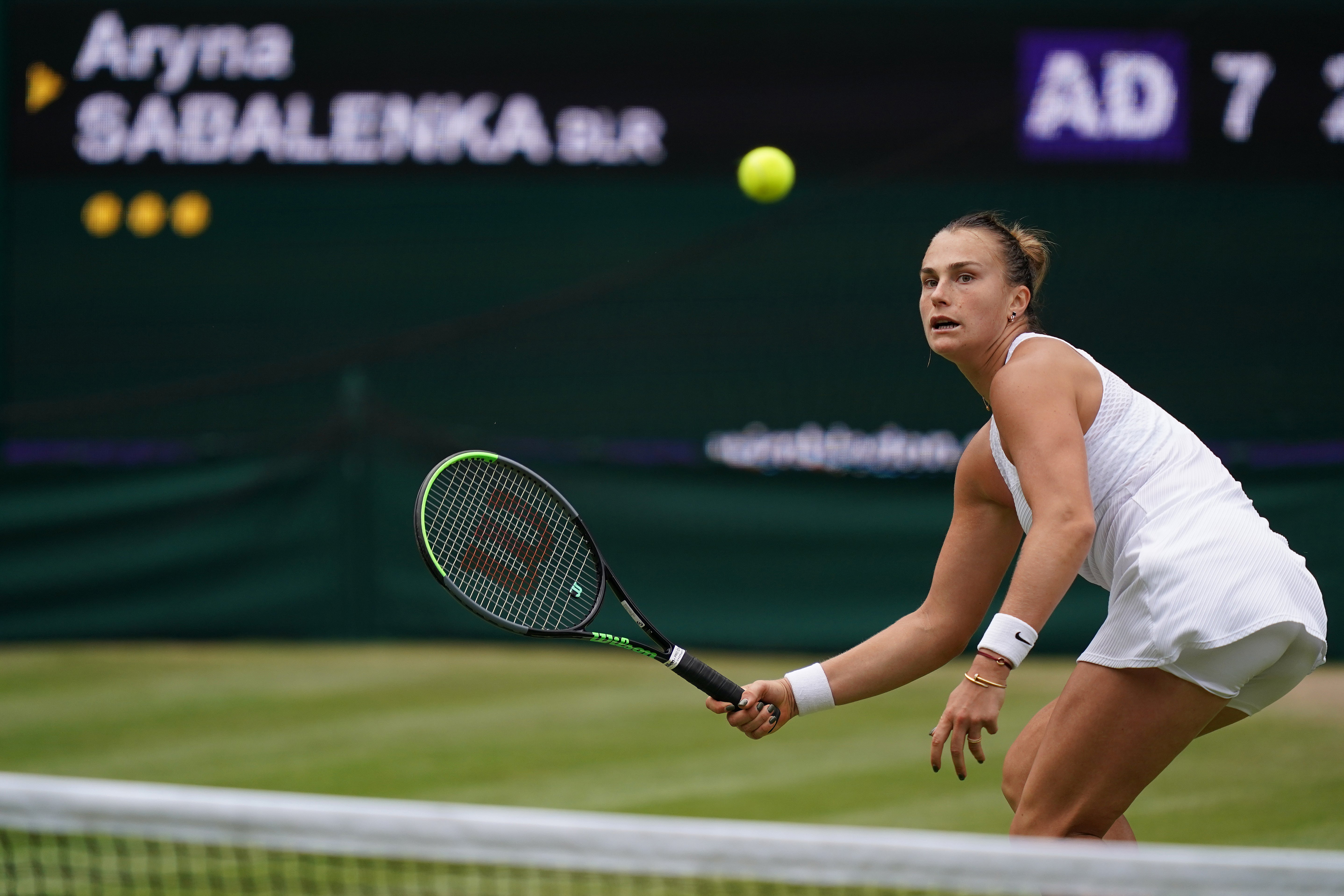Wimbledon’s ban on Russians could spell the end of world sports events
Sports fans from across the world – especially in south Asia – have fought against these kind of exclusions for decades


Your support helps us to tell the story
From reproductive rights to climate change to Big Tech, The Independent is on the ground when the story is developing. Whether it's investigating the financials of Elon Musk's pro-Trump PAC or producing our latest documentary, 'The A Word', which shines a light on the American women fighting for reproductive rights, we know how important it is to parse out the facts from the messaging.
At such a critical moment in US history, we need reporters on the ground. Your donation allows us to keep sending journalists to speak to both sides of the story.
The Independent is trusted by Americans across the entire political spectrum. And unlike many other quality news outlets, we choose not to lock Americans out of our reporting and analysis with paywalls. We believe quality journalism should be available to everyone, paid for by those who can afford it.
Your support makes all the difference.Wimbledon’s decision to ban Russian and Belarusian tennis players sounds like a familiar disturbing note for south Asian sports fans. In the 1990s, radical Hindus in India started digging up pitches to prevent India-Pakistan cricket matches. Later, the Indian Premier League prevented Pakistani players from competing entirely. In other words, cricket’s top T20 competition doesn’t feature two of the top three batsmen due to their national identity.
Wimbledon will similarly deprive its global audience of two of the best players in the world, Russian Daniil Medvedev and Belarusian Aryna Sabalenka. And no one even needed to dig up the centre court at SW19 to push the All England Lawn Tennis Club into making this draconian move.
What is the credibility of a tennis competition that won’t let top-ranked players participate, because of their country’s crimes, and not for a personal act such as breaching Covid regulations for example?
Would the ATP and WTA tennis rankings really be just when athletes from two nations are barred from competing in one of four majors? Should Wimbledon still be called an “open” championship?
But, of course, “some things are bigger than sports”.
The problem with this statement is that it means different things to different people in different parts of the world. And once the “bigger” thing justifies exclusion based on identity, it’s a brazen show of bigotry and discrimination.
For example, for many athletes in many Arab and Muslim states, animosity for Israel is bigger than the Olympics. Many have been willing to accept bans from the sport they’ve dedicated their lives to, so as to not play against an Israeli athlete. In singling out Israel, these athletes quite often don’t see grave human rights abuses elsewhere, especially in their own countries, just as the west is unlikely to view its catastrophic wars in Iraq or Afghanistan as grounds for other states to ban athletes.
If war crimes became a criteria for not allowing athletes from a country to compete – British, American or French athletes would become wildcards around the world.
Also, what possible justification, even on the skewed moral scale, can any western state give for banning athletes from a country based on its crimes, while China and Qatar have and will host world events on either side of Wimbledon?
Wimbledon’s ban will only strengthen jingoistic calls from hardliners, and eventually lead to tournaments in spheres of political influence. World sporting events could become a thing of the past.
Any attempts at using sports for peace-building would be completely quashed as well. Pakistan’s Aisam-ul-Haq Qureshi, for instance, put his career and life on the line to partner with Israeli and Indian players in men’s doubles. This summer he will enter SW19 to see entire nationalities being wiped off from the various draws at the site where Qureshi and Amir Hadad made global headlines exactly 20 years ago as a Muslim-Jew, Pakistani-Israeli doubles team.
To keep up to speed with all the latest opinions and comment, sign up to our free weekly Voices Dispatches newsletter by clicking here
Pakistan and Russia share much in common outside of contributing top-tier athletes to cricket and tennis respectively. Both have autocratic regimes, they both seek instability in the immediate neighbourhood to extract geopolitical gains, and they both treat sovereign bordering states – Afghanistan and Ukraine – as useful extensions of their territorial borders to be utilised against arch rivals (notwithstanding New Delhi’s own contribution in the bilateral conflict).
But even at the peak of war and hostility between the two countries, India has always played against Pakistan at global events. What would remain of world events that lets bilateral politics dictate who gets to play whom?
In banning Russian players, Wimbledon has betrayed millions of peaceniks and sports fans from across the world who have fought against these kind of exclusions for decades.
Join our commenting forum
Join thought-provoking conversations, follow other Independent readers and see their replies
Comments